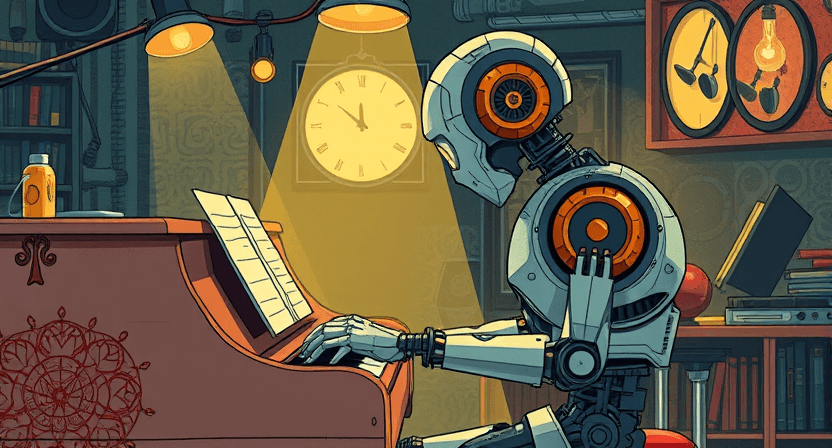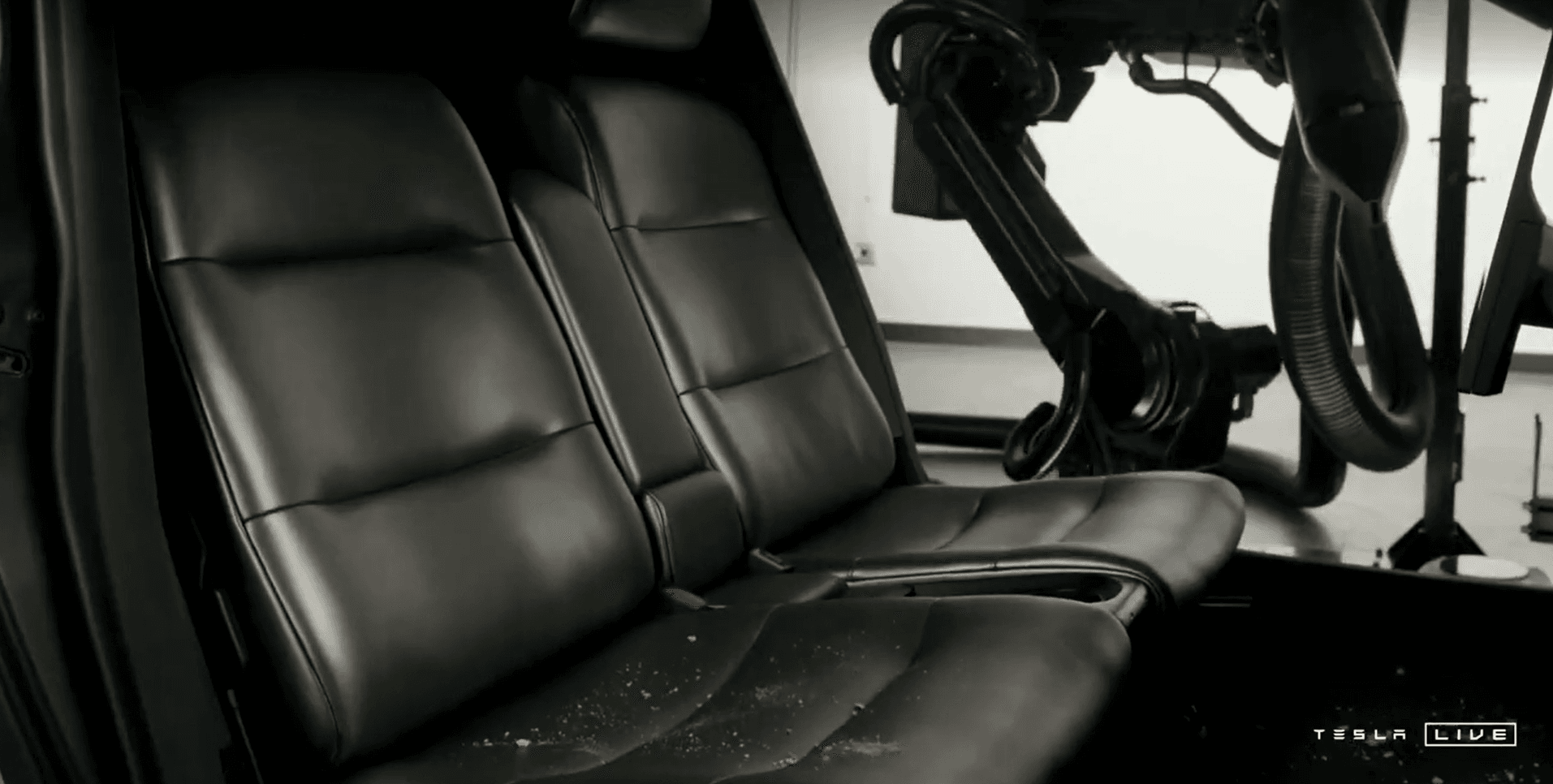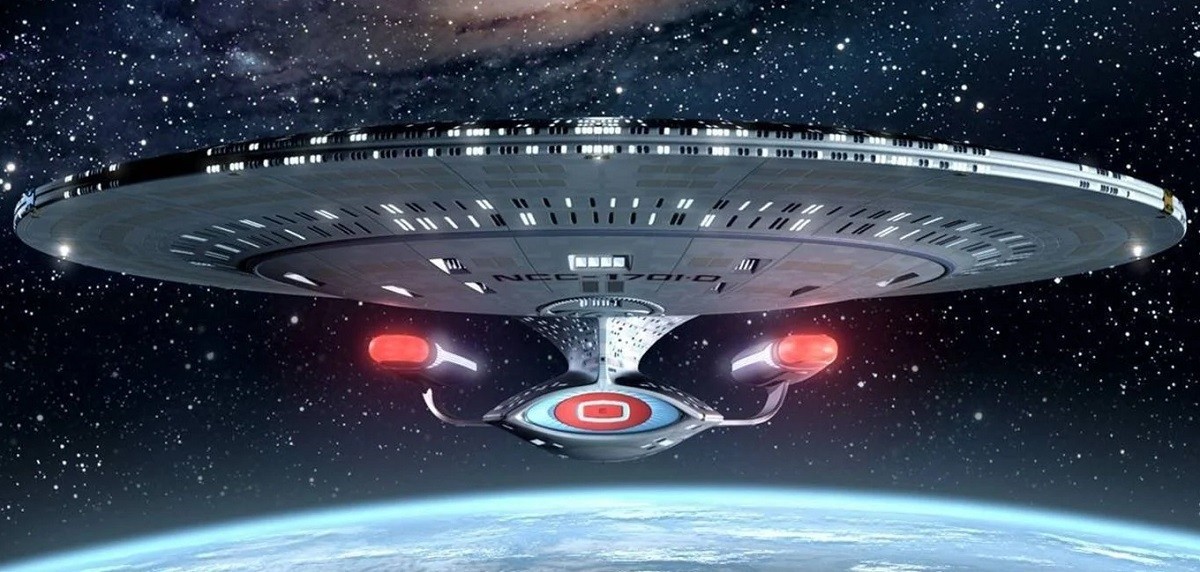philosophy
Jan 16, 2025
The Tyranny of Outcome - Part IV
How AI sparks the human renaissance
10 min
read
Summary
As AI automates jobs across sectors, humans will be forced to re-evaluate the role of work. Robots will dominate tasks centered on efficiency and utility, but jobs that emphasize human creativity, emotional intelligence, and connection are likely to remain the domain of humans. This may lead humanity into a world in which curiosity and connection matter more than tangible outputs.

generated by deepai.org
Article Voiceover
(Part IV)
In Parts I, II, and III of this series we considered the notion of how, as we mount Maslow's hierarchy, the pendulum of our lives swings from process focus to outcome focus. The allure of presence, play, curiosity, acceptance, enjoyment, and being are temporarily supplanted by planning, work, responsibility, expectation, delayed gratification, and doing.
In our long jaunt down this archetypal path, our intuition tells us that we've lost something important: our connection to our essential selves and to the natural order and flow of the universe. Once happy with the pursuit of outcomes, our heart no longer wants to collect things, experiences, accolades, status, and successes. We feel a need to locate and commune with the lost child within, who we now realize was patiently offering us the keys to our aliveness all along, with open palms. We wish to find a way to banish what now seems like decades of outcome's tyrannical rule.
Where along the spectrum of process and outcome do you exist?

Looking over my shoulder at the table of process and outcome words above, my 11-year old daughter just remarked that "I like the things on the left better, daddy." I hear you, Lola.
We've all heard the stories of end-of-life regret over having worked too long, or having not spent more time with friends and family, or having avoided really taking a bite out of that passion project. But knowing this before it's too late doesn't really seem to change our behaviour. Death somehow seems an abstract concept until it's right on our doorstep ringing the bell. So where do we find the motivation to embark on the life we say we want?
The march of AI
Before the advent of generative AI, the robot revolution crawled slowly enough that we weren't bothered by its steady rise. Human elevator operators stopped greeting us with "going up!" and "which floor?" Horses were replaced with automobiles. Integrated circuits made all of our appliances smarter, providing one-touch cappuccinos. And AI robots were mostly relegated to narrow, special-purpose problems like image recognition, voice transcription, and playing chess or Go. It was all fairly pleasant.
Since November 30, 2022, a.k.a. the "Chat GPT moment," AI has unceremoniously yanked humanity into an uncertain future. Novel and disruptive innovations and capabilities buffet us weekly. LLMs, having now digested the entirety of human output in digital form, have set their sights on mastering the real world. AI can now read the room and generate stories, images, documents, video, music, and code, with a few directed prompts. Robots are staging an epic incursion into the sphere of human activity and dynamics.
The other day on my walk to work, I came across a pizzeria with no entry door. A street-level robot behind the storefront glass produced a small pepperoni pizza at my request, baking and boxing it for me before shoving the piping hot pie through a slot in the wall. And well... it was pretty tasty.
All else being equal, companies and capital will flow to labour with the lowest price per unit of output. Over the next few decades, Robots will be taking our jobs, and the transition is shaping up to be very painful for most of the current economy's workforce.
Optimists predict that this will lead to vast productivity increases, so much so that the meaning of an "economy" will no longer even be clear. We will be forced to pursue activities for their own sake.
Subsistence farming employs most of the people in the world, as at least it contributes directly to the farmer's own food security even if they have little else. After this, however, retail sales, construction, and drivers / delivery personnel employ the next largest swaths of humanity. Shopping from Amazon and other online retailers from home, food ordering and delivery apps, robots that build homes in days, and self-driving vans and semi trucks have already displaced millions. Health care diagnosis, logistics, software development, legal research, painting, photography, architecture, and... all of marketing; the list of jobs that AI can now do faster and cheaper than humans can is endless.
Doubling down, the humanoid robot form factor is designed to dovetail more naturally with the world humans have created for ourselves. And Distributed Autonomous Organizations (DAOs) have algorithmic leadership and robot boards of directors. If you look far enough into the future, it will be harder and harder to imagine what productive work we can do that robots cannot.
There are those that believe that "the arts" will remain a human endeavour, but their detractors contend that robots will eat our lunch there as well. Indeed, given a simple prompt regarding length, tempo, key, genre, and idiom, AI music generators can now produce amazing songs that many of us may have difficulty distinguishing from human creations, and they're getting better all the time.

generated by deepai.org
Battle lines
It's not all doom and gloom, though. Whenever technology has intervened in the past, we have always pivoted to new kinds of work, the latest iteration of which has brought us into the service and experience economy we have today. For this next wave of disruption, though, we have to look a little deeper than the concept of "productive output" to predict where the new battle lines vis à vis jobs and robots will be drawn.
For instance, would you want to go to a rock concert at which the music was generated live by AI? Maybe once as a novelty, but with diminishing returns thereafter. In contrast, I've seen Rush alone perform 5 times!
AI cannot easily reproduce the experience of human connection at a live concert. We marvel at what happens on the stage not only because we like the songs, but because it's remarkable that members of our own human family have bee n able to ascend to such heights of artistic expression, producing a sound that moves us. We picture ourselves in their place, injecting our own story into the music and lyrics, and the resulting sweet stew has us dreaming about our own potential, rocking out on air guitar and high-fiving our fellow concertgoers. The band and the audience are all there together to "make the scene."

Photo by Roberto Rendon on Unsplash
The same music produced by a program would be noteworthy, but for completely different reasons. The stage is where we go to connect with exaltant human energy and potential.
All the world's indeed a stage
We are merely players
Performers and portrayers
Each another's audience outside the gilded cage
Living in the limelight, the universal dream
For those who wish to seem
Those who wish to be, must put aside the alienation
Get on with the fascination
The real relation, the underlying theme
— Neil Peart
In the lyric above, Peart poetically evokes the reciprocity of human connection, and echoes our series' central distinction: outcome-focused posers glorify the "gilded cage" of celebrity, but true artists remain fascinated with the "the real relation" — the process of creation.
This presents an interesting dichotomy: when the point of the activity is the output itself, like the harvesting of commodities, or the production of goods and services with some valuable utility, robots will take center stage. Even humans that command, control, and maintain emerging robot armies may well be supplanted by robot managers.
In anticipation of its forthcoming robotaxi fleet, Tesla now has a robot that will clean its cars and another one to charge them wirelessly, alongside the throngs currently responsible for building them. White glove transport and delivery of your car won't be necessary in the future either, as the cars will drive themselves to your door.

Tesla's car-cleaning robot (YouTube)
On the other hand, jobs requiring human creativity, emotional intelligence, and perhaps complex human-centric decision-making will more likely fall to people. This includes jobs like care-giving, policy-making, ethics, philosophy, conflict mediation, social entrepreneurship, sports and competition, and human-generated art.
In an ironic circularity, humans will be almost exclusively be corralled into work the point of which is the process of engaging in some human-centric endeavour. It wouldn't surprise me if this ends up being the kind of work we all crave since it's connection-oriented, much like childhood play. More and more our work will be to help each other manage our well-being and explore our minds, the place where purpose and meaning are created in the first place.
And as I'm sure you've guessed by now, the majority of these will be process-oriented jobs, the "output" of which is decidedly intangible: understanding, connection, health, fairness, guidance, learning, and enjoyment among them.
A forcing function
The history of work reveals a trend toward "better work life balance." Throughout human history, slaves were worked to the bone, producing much of the wealth of the modern world. In the UK, the Factory Act of 1833 kicked off the long march toward improving working conditions for children (!), restricting work completely for young children, though adults still regularly worked 80-hr weeks. The concept of the "weekend" originated in England later in the 19th century. Henry Ford then brought it to America in 1926. Ford's decision was motivated by a desire to increase productivity and worker loyalty, as well as to sell more cars to his employees, who would need the weekend to take their families on road trips.
Though striking workers and labour unions have been improving working conditions, raising salaries, and shortening mandatory work times ever since, it seems as though we still haven't yet achieved the amount of leisure time we collectively desire.
It's notable that the United States officially adopted the five day work week in 1932 to help combat unemployment during the Great Depression. The four day work week seems like the next logical step, with many trial programs afoot in progressive governments and organizations globally.
The loss of work is bound to be painful and confusing at first. Earning and productivity, the old reasons for getting up in the morning, will have vanished. We'll enter an existential wilderness. Briefcase in hand, but with no destination, we will be forced to unwind the knotted ball of our motivations, re-learning how to direct ourselves.
As the unwitting catalyst for an unwanted employment crisis, AI may induce society at large to adopt a shorter workweek sooner rather than later, to deal with the reduced need for human productivity in the economy, forcing us kicking and screaming into the world we say we want.
But let's not forget that the robots will also produce a never before seen abundance. The prevailing morality of the time will dictate how this wealth is distributed, and the have-nots (which will be most people) will have to fight for their slice, as always. But it's no question that the pie will be much, much larger. The productive onslaught of AI may, in the end, rescue us from the tyranny of outcome.
The rise of the artist
Some people dismiss artists as "unproductively experimenting with their inner worlds," and "just not contributing enough to the economy, dammit." But in an ironic twist, our need for artists will rise dramatically in a post-outcome world. Artists are very much at home in the creative process; their entire work is to imbibe and transmute the human experience; to teach us about ourselves and remind us of our potential. We will need them more than ever to sort through our displacement in an AI-dominated economy.
Where no-one has gone before

©CBS/Viacom
Gene Roddenberry imagined a world of abundance when he created Star Trek. Owing to technological advancement, human beings in the Star Trek universe are no longer tethered to our home planet. Money is rendered obsolete. Food and drink are created on command by a replicator. All experiences one can imagine can be simulated on the holodeck. Humans and robots work side by side in an ongoing journey of mutual discovery. And the prevailing polestar of the time is to "boldly go where no-one has gone before!"
Space: the final frontier. These are the voyages of the starship Enterprise. It's continuing mission: to explore strange new worlds; to seek out new life and new civilizations; to boldly go where no-one has gone before! — Star Trek
The intergalactic exploration of the Enterprise embodies the durability of human curiosity; our need to explore. Indeed, our curiosity would be bolstered even further by the shift to a world so futuristic we can't yet fully fathom it.
Space exploration is the externally-focused literal interpretation of "boldly going," but there is also the more important figurative meaning — the journey of self-discovery. Free from the shackles of "productive output," the humans of Star Trek turned to curiosity and discovery in all forms. I see no reason to believe we won't, as well.
Trekkies will remember that Captain Picard took up fencing as a hobby, suggesting that autonomy and mastery (in sport, music, art, debate, and philosophy) will still drive us in the future. Work will seem more like play, promoting connection, self-knowledge, and flow.
Early adopters
I believe the canny, early adopters among us will embrace the precious gift of this transition with gratitude, and as is usually the case, all will later discover that any other way would be unfathomable. Imagine the leisure time associated with a two-day workweek. What about one, or... zero? This would certainly create space for activities that vibe more naturally with the human psyche, even if we're initially forced into the heroic posture of discovering what those are.
I'm not too worried about that part, though. Human beings are meaning makers — it's how we contend with an indifferent universe.
Knowing that the fossil fuels are not renewable, it's not a matter of if we will run out of them as an energy source, but when. Since using them also destroys our atmosphere, the only logical choice is to replace them with renewables as quickly as possible.
In the same way, you need not wait for the robot revolution or the two-day work week to wake up the kid inside. Instead, imagine you're living on the Starship Enterprise, and the holodeck is right down the hall. Where does your curiosity lead you? What hobbies would you take up? What would you play with and explore? How would you be of service to others? The sooner we can answer these questions and begin to engage, the sooner we'll rediscover how to play like children, embrace the blissful flow of acting without expecting, and more easily locate and uncover the hidden gateways to transcendence.
———————————————————-
License for voiceover background music:
#Uppbeat (free for Creators!):
https://uppbeat.io/t/qube/ocean
License code: 8MY3BQ8VPQMPUDV8






